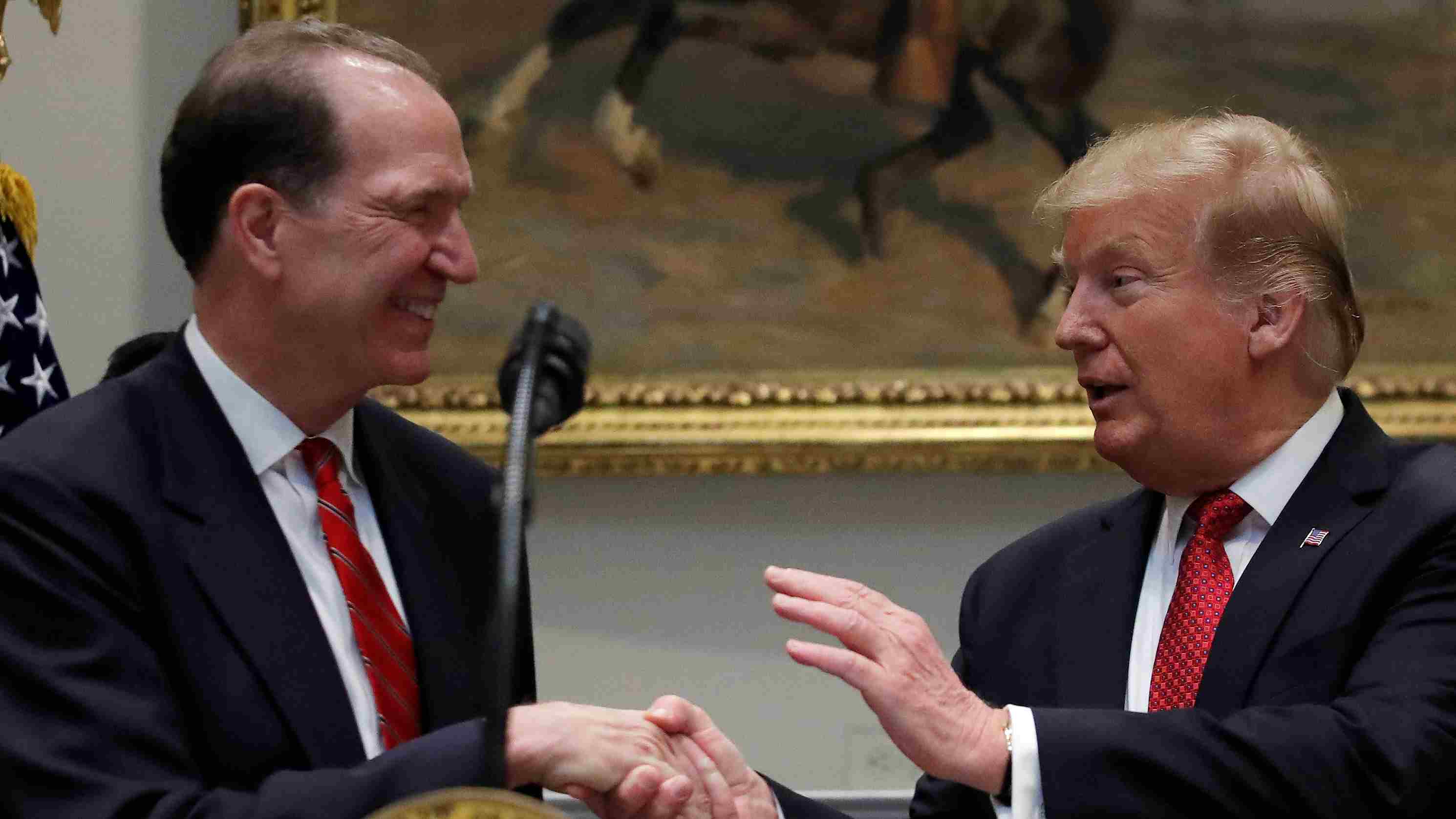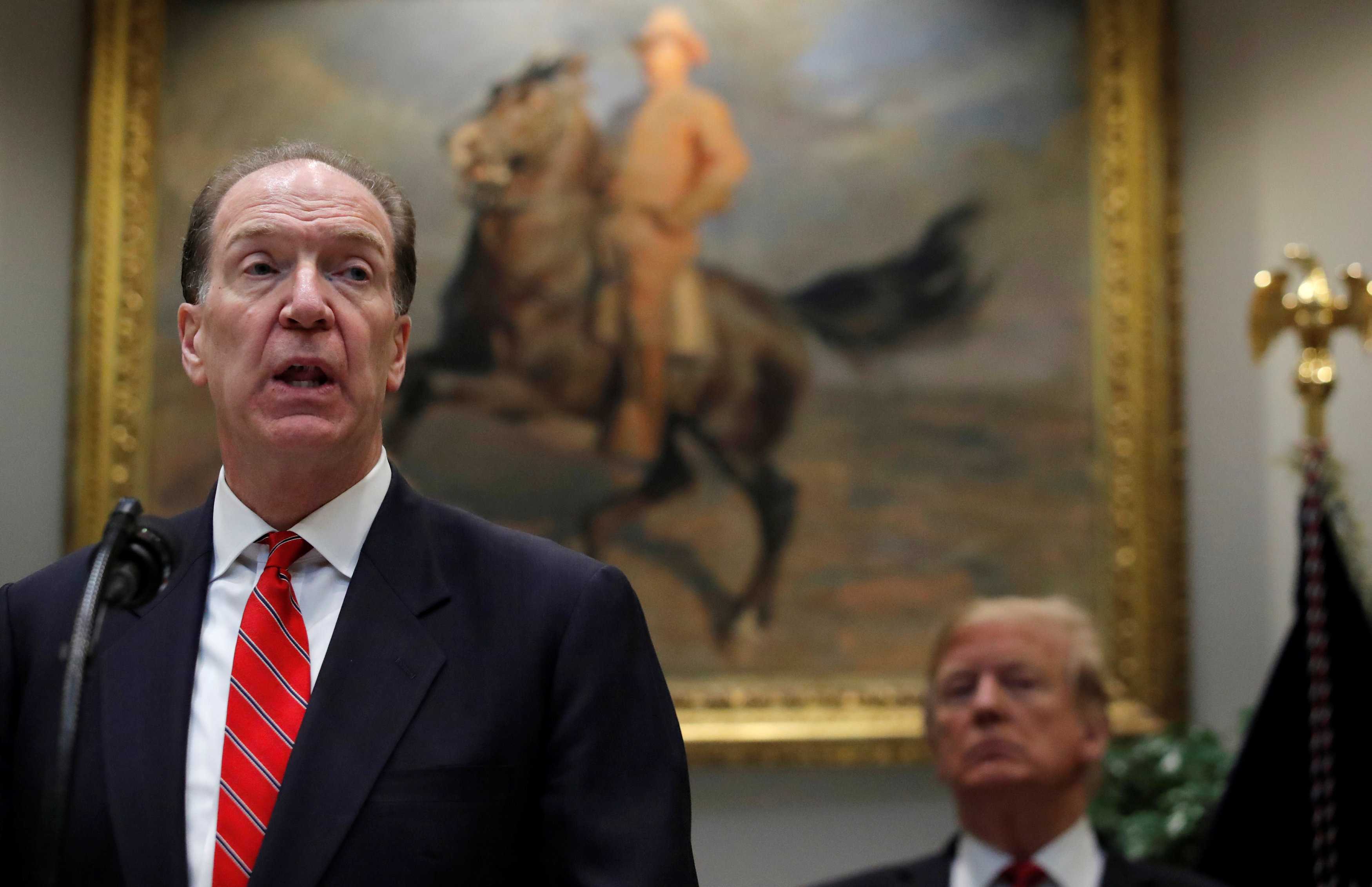
North America
08:08, 07-Feb-2019
World Bank presidency: Who is U.S. nominee David Malpass?
Updated
09:14, 07-Feb-2019
By John Goodrich

The United States has nominated David Malpass, an outspoken U.S. Treasury Department official, to be the next president of the World Bank.
Malpass is a divisive choice to lead the Washington-based institution, which has been headed by an American since it was founded more than 70 years ago, and his nomination could be fiercely opposed by developing nations.
U.S. President Donald Trump confirmed the nomination on Wednesday, describing Malpass as a longterm supporter and the best candidate for the job.
"David has been a strong advocate for accountability at the World Bank for a long time," Trump said. "He has fought to ensure financing is focused on the places and projects that truly need assistance, including people living in extreme poverty."
Malpass' record suggests that-if elected-he could pursue wide-ranging reforms.
What is Malpass' background?
Malpass is the U.S. Treasury's undersecretary for international affairs, essentially the department's top diplomat.
In 2018, Malpass helped negotiate a package of World Bank lending reforms that aimed to limit the bank's lending and focus resources more on poorer countries. According to Reuters, the reforms seek to “graduate” more middle-income countries to private-sector lending and limit World Bank staff salary growth.
The 62-year-old has played a significant role in recent trade talks, visiting Beijing in January and leading the U.S. group that held talks with a Chinese delegation in Washington in August. He has strongly supported Trump's tax-cutting, deregulating agenda.
He previously served in the Reagan and first Bush administrations, unsuccessfully ran for Senate in New York in 2010 and worked on the Trump transition team as an economic adviser. He was chief economist at investment bank Bear Stearns until its collapse in 2008.

U.S. candidate in election for the next president of the World Bank David Malpass speaks at an event with U.S. President Donald Trump at the White House in Washington, U.S., February 6, 2019. /Reuters Photo
U.S. candidate in election for the next president of the World Bank David Malpass speaks at an event with U.S. President Donald Trump at the White House in Washington, U.S., February 6, 2019. /Reuters Photo
What has Malpass said?
Malpass welcomed the nomination as a "great honor" on Wednesday, and said he hoped to build on "constructive reforms" he helped negotiate last year.
He has previously been critical of the institution, hitting out at the World Bank, which finances loans to developing nations for infrastructure and development projects, in congressional testimony in 2017. He called for substantial reform of the institution, which committed nearly 64 billion U.S. dollars in loans in the year to June 30, 2018.
Malpass criticized global bodies including the World Bank, arguing they've "grown larger and more intrusive" and that "the challenge of refocusing them has become more urgent and more difficult." He has also said that the trend towards multilateralism "has gone substantially too far."
According to Bloomberg, Malpass' public record suggests he "may scale back the bank's ambitions at a time when China has escalated lending to the developing world."
Will Malpass be elected?
Historically, an American has always led the World Bank and a European the International Monetary Fund. But Malpass' nomination could prove controversial, and lead to renewed calls for developing nations to be better represented.
Developing countries may oppose him, making European countries the swing votes. But by the terms of the unwritten pact, if European nations were to oppose the U.S. nominee they would also risk giving up their stewardship of the IMF. Reuters on Tuesday quoted a European diplomatic source as saying European members were unlikely to oppose Malpass.
Nominations open on Thursday and close on March 14. Any of the 189 World Bank member nations can propose a candidate.

SITEMAP
Copyright © 2018 CGTN. Beijing ICP prepared NO.16065310-3
Copyright © 2018 CGTN. Beijing ICP prepared NO.16065310-3